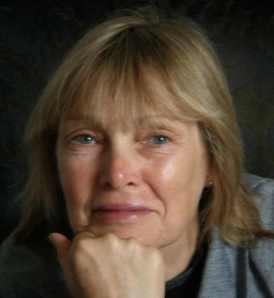Press RELEASE
For immediate release
August 2nd 2010
www.wpradio.co.uk looks at voting reform and more women in Westminster with Margot James MP, Jo Swinson MP, Angela Eagle MP
MPs will vote on the government’s plans for a referendum on AV the first day back after their summer break. Critics say our “First-Past-The-Post” voting system lets down female candidates because of the advantages it hands to incumbents. In the UK just one in five of our MPs is female. So will the new AV (“alternative vote”) system be any better?
Our Executive Producer Boni Sones OBE, asked three women MPs if changing the voting system would help women’s representation.
Margot James Conservative MP for Stourbridge, Jo Swinson LD MP East Dunbartonshire, Angela Eagle Labour MP for Wallasey, give their verdict on voting reform.
Margot James MP said: “I am really a supporter of the status quo I think I favour the “First-Past-The-Post” system for all its faults. Other systems have an inherent tendency to weak and constantly changing government and I feel also that the other systems tend to have politicians choosing governments rather than the electorate.
“I am in favour of the referendum I think it is something people should have the right to vote on and it’s something the LD feel very strongly about and they are part of the coalition, so I am quite happy to have a referendum next year but it’s not something I will be campaigning on myself.
“We’ve tripled our number of women MPs over the last Parliament in the Conservative Party so I have seen what works and what doesn’t. I don’t think the voting system has a huge impact, but it does to a certain extent.
“There is no doubt where a genuinely proportionate system of voting takes place it does seem to get more women elected but I’m not sure you can say it is causally related to the voting system. Also when you have a system where there is a multiparty list system like in the EU elections, where we got a lot of women in – that generates more women MPs, as do quotas. However, I favour positive action to encourage more women to come forward and to support those that do to develop their political skills and suitability for public office, that’s the way the Conservative party has gone and its born fruit.”
Jo Swinson MP said: “I have never thought that electoral reform is the great key to sorting out diversity in Parliament, I am big fan of electoral reform and a big fan of more diversity in Parliament and at the edges they can help each-other but certainly I think the main way to get more women in parliament and more people from ethnic minorities is to support them in standing as candidates. There is no suggestion that the public is dreadfully sexist, they are very happy to vote for women and for people from BME backgrounds, but the party has a lot more work to do to ensure these people get selected in seats they can win.
“In an ideal world STV is the best system, but to get a consensus AV has a lot of the advantages of STV in that it is preferential and it doesn’t break the link between the member and the constituency. I think people are looking for a system that is fairer rather than a discredited electoral system where in many seats you can’t get rid of an MP, they are totally safe.”
Angela Eagle MP said: “In my view it’s a red herring to say any particular voting system is any better than any other voting system for getting women selected and elected. There are mechanisms in any system for getting women selected in winnable seats to ensure they are elected and to argue that somehow you have to have STV so you get more women is a complete red herring.
“We know that with our “First-Past-The-Post” system, with a great deal of determination, the Labour party got All-women shortlists and fought that through our own structures. We had 101 women elected in the landslide of 1997 because of those efforts, you can ensure women get a fair look in whatever voting system you have you just have to be determined to do it.
“When I first came into the House in 1992 there were only 60 women out of 650 MPs, we aren’t that much further along now, although we have made good progress, so we have to ensure we keep this top of the agenda, and you need mechanisms to ensure that women have set seats women can stand in.
“With AV there is no particular reason why you would get a woman rather than a man unless you maintained the kinds of approaches that the Labour Party has taken to All-women sortlists in particular seats. It’s where you apply “the requirements” and you can require women to have a set place in an STV election by having alternative woman man, woman man lists. Or with “First-Past-The-Post” you can have All-women shortlists in the party doing the choosing in a set number of seats.”
AV allows voters to rank candidates in their constituency in order of preference. Anyone getting more than 50% of first-choice votes in the first round is elected, otherwise the candidate with the fewest votes is eliminated and their backers’ second choices allocated to those remaining. This process continues until a winner emerges.
You can also listen to our 2008 ERS debate on electoral reform chaired by Jackie Ashley, our Chair, with Chris Huhne MP LD, Caroline Spelman MP Cons, and Labour’s Stephen Pound MP on www.wpradio.co.uk 2008 content page.
Filed under: Uncategorized | Leave a comment »



